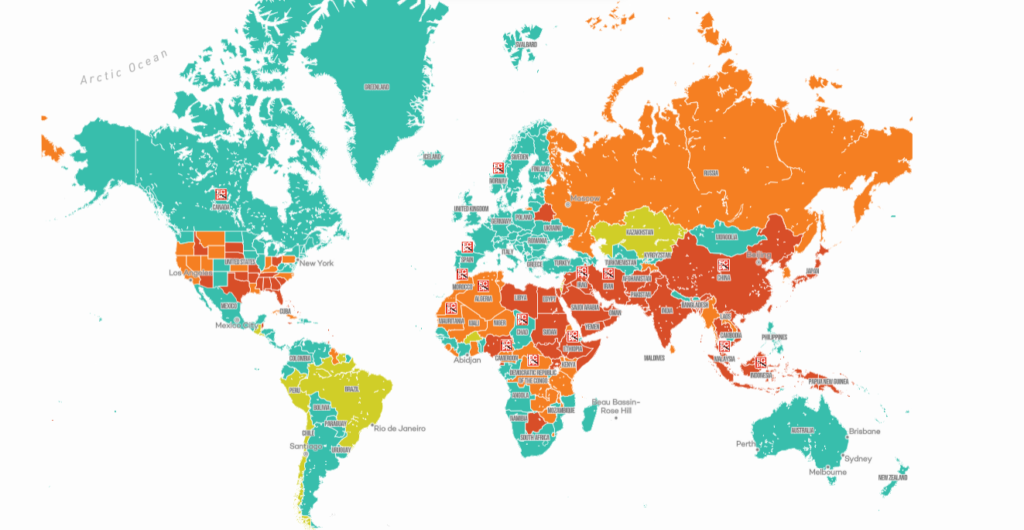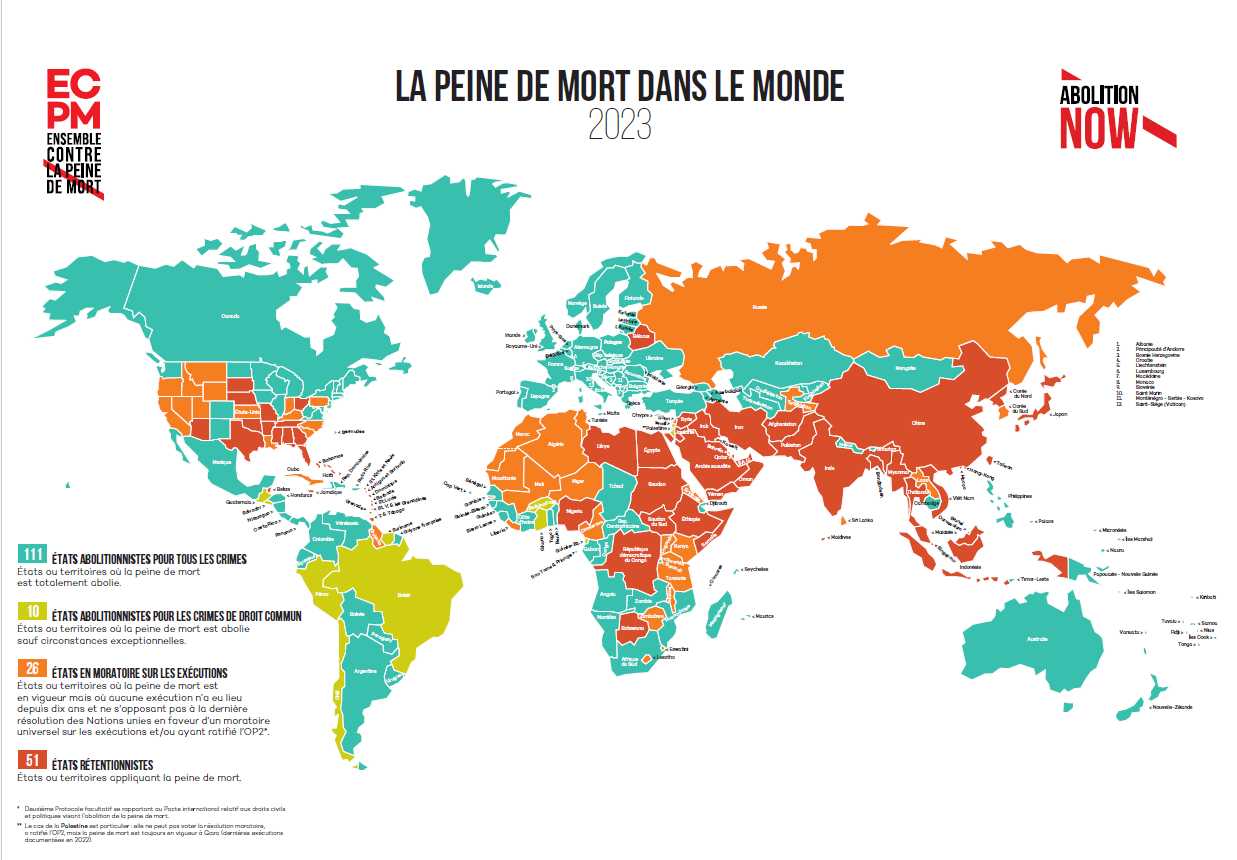A global trend towards abolition
Just over 40 years ago, in 1981, when France abolished capital punishment, two thirds of the world’s states practised the death penalty on a regular basis. Today, this trend has been reversed: with 60% of states now abolitionist, universal abolition is becoming a reality, year by year.
In 2023, of the 198 Member States or observers* of the United Nations:
*Cook Islands, Niue and Taiwan included as well
Definitions :
- ABOLITIONIST: States or territories where the death penalty has been abolished for all crimes (also referred to as “total” abolition).
- ABOLITIONIST FOR ORDINARY CRIMES: States or territories where the death penalty has been abolished except in exceptional circumstances (also referred “common law abolitionist”). Ordinary crimes are related to, among others, the Penal Code, e.g. murder, rape, conspiracy, drug trafficking. Exceptional circumstances means in times of war or other exceptional regimes: in this case, the death penalty is still provided for in the Code of Military Justice.
- WITH A MORATORIUM ON EXECUTIONS: States or territories where the death penalty is in force but where no executions have been carried out for the last 10 years and which did not oppose the most recent UN resolution on a universal moratorium on executions and/or which have ratified OP2*.
- RETENTIONIST: States or territories where the death penalty is implemented.
*OP2: Second Optional Protocol to the International Covenant on Civil and Political Rights, aiming at the abolition of the death penalty

Find out the status of the death penalty, state by state, or in the member states of a particular intergovernmental organisation, and visualise the trend towards abolition.
Uneven application around the world
The death penalty is predominantly applied in Asia, the Middle East and the United States.
In 2023, 90% of confirmed executions worldwide took place in two countries: Iran and Saudi Arabia. However, China alone carries out more executions every year than all the other countries combined, even though its official figures are classified as a state secret.
Iran holds the appalling record of being the country with the highest execution rate per capita: at least 834 people were executed in 2023.
China, Iran, Saudi Arabia, Somalia and the United States
are the 5 States that executed the highest number of death penalty prisoners in 2023, according to Amnesty International’s report “The Death Penalty in 2023”.
Focus on Africa, the next abolitionist continent
Most of the 27 African states that have abolished the death penalty in law did so after applying a moratorium on executions for more than ten years (e.g. Senegal and Republic of Congo). 10 have amended their constitutions (e.g. Mozambique and Côte d’Ivoire) while another 10 have reformed their penal codes (e.g. Senegal and Togo). In Benin, abolition followed the ratification of OP2. 1/4 of African countries have ratified this protocol.
On the other hand, not all states with a moratorium are engaged in an active abolitionist process. The vast majority of the 19 states with a moratorium have been abolitionist for more than 20 years, or even, for example in Niger, for more than 40 years. Liberia, located in a predominantly abolitionist region, maintains the death penalty despite having acceded to OP2.
1/4 of the 28 members of the African Union that have not abolished the death penalty in law still apply it on a mandatory basis. 4 states continue to issue death sentences for homosexuality and apostasy, such as Nigeria. About 3/4 of non-abolitionist states maintain the death penalty for acts of terrorism.
The recent abolitions in the Central African Republic, Equatorial Guinea, Zambia and Ghana, as well as a number of positive signs such as in Kenya and Zimbabwe, raise hopes that Africa will be the next abolitionist continent.
Within international organisations
As of the end of 2023,
- 90 % of the 54 full member states of the International Organisation of La Francophonie are abolitionist* or have a moratorium on executions.
- 64 % of the 56 member states of the Commonwealth are abolitionist* or have a moratorium on executions.
- 100 % of the 9 member states of the Community of Portuguese Language Countries are abolitionist (77% are abolitionist for all crimes).
- 58 % of the 57 member states of the Organisation of Islamic Cooperation are abolitionist* or have a moratorium on executions.
- 32 % of the 22 member states of the Arab League are abolitionist* or have a moratorium on executions.
*including abolitionist for all crimes and abolitionist for ordinary crimes



